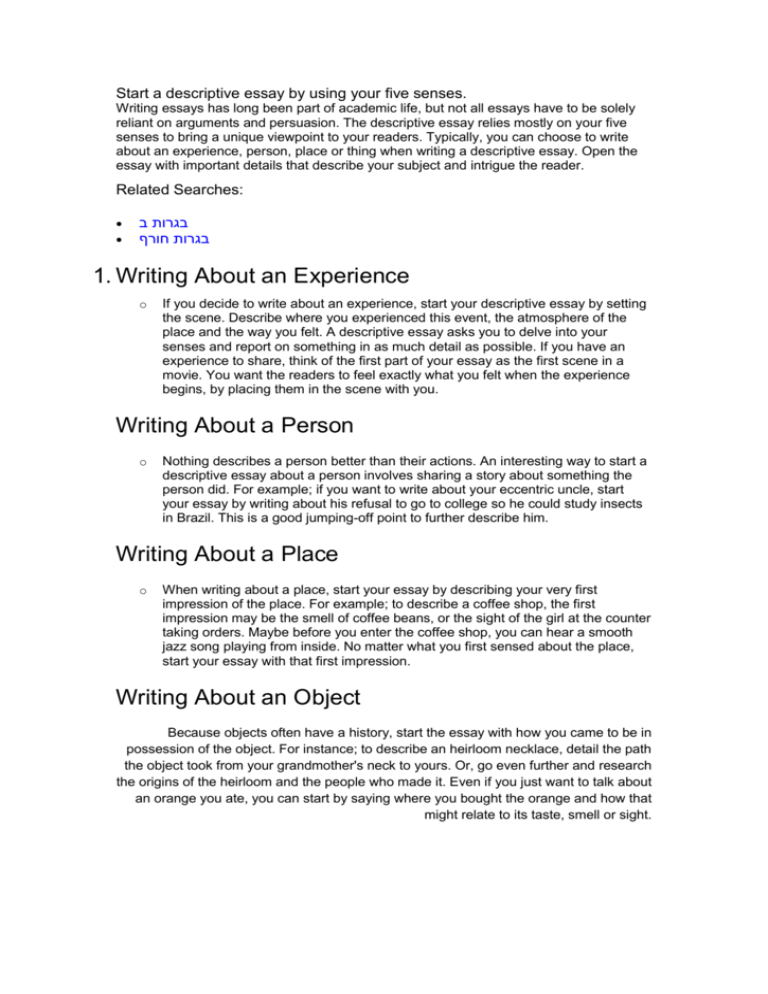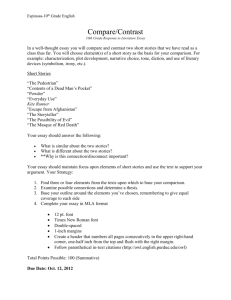start a descriptive writing
advertisement

Start a descriptive essay by using your five senses. Writing essays has long been part of academic life, but not all essays have to be solely reliant on arguments and persuasion. The descriptive essay relies mostly on your five senses to bring a unique viewpoint to your readers. Typically, you can choose to write about an experience, person, place or thing when writing a descriptive essay. Open the essay with important details that describe your subject and intrigue the reader. Related Searches: בגרות ב בגרות חורף 1. Writing About an Experience o If you decide to write about an experience, start your descriptive essay by setting the scene. Describe where you experienced this event, the atmosphere of the place and the way you felt. A descriptive essay asks you to delve into your senses and report on something in as much detail as possible. If you have an experience to share, think of the first part of your essay as the first scene in a movie. You want the readers to feel exactly what you felt when the experience begins, by placing them in the scene with you. Writing About a Person o Nothing describes a person better than their actions. An interesting way to start a descriptive essay about a person involves sharing a story about something the person did. For example; if you want to write about your eccentric uncle, start your essay by writing about his refusal to go to college so he could study insects in Brazil. This is a good jumping-off point to further describe him. Writing About a Place o When writing about a place, start your essay by describing your very first impression of the place. For example; to describe a coffee shop, the first impression may be the smell of coffee beans, or the sight of the girl at the counter taking orders. Maybe before you enter the coffee shop, you can hear a smooth jazz song playing from inside. No matter what you first sensed about the place, start your essay with that first impression. Writing About an Object Because objects often have a history, start the essay with how you came to be in possession of the object. For instance; to describe an heirloom necklace, detail the path the object took from your grandmother's neck to yours. Or, go even further and research the origins of the heirloom and the people who made it. Even if you just want to talk about an orange you ate, you can start by saying where you bought the orange and how that might relate to its taste, smell or sight.









